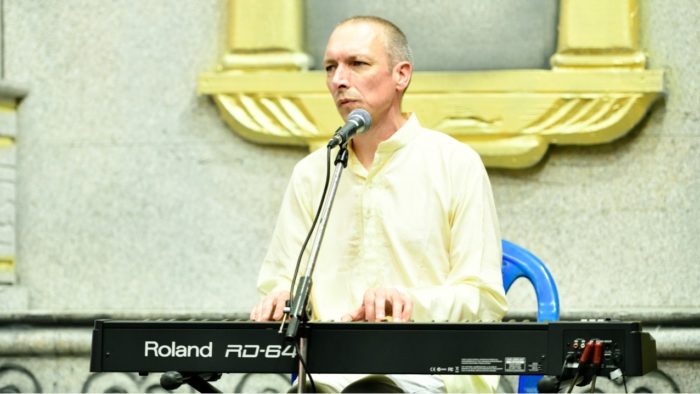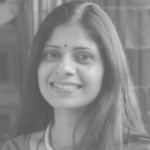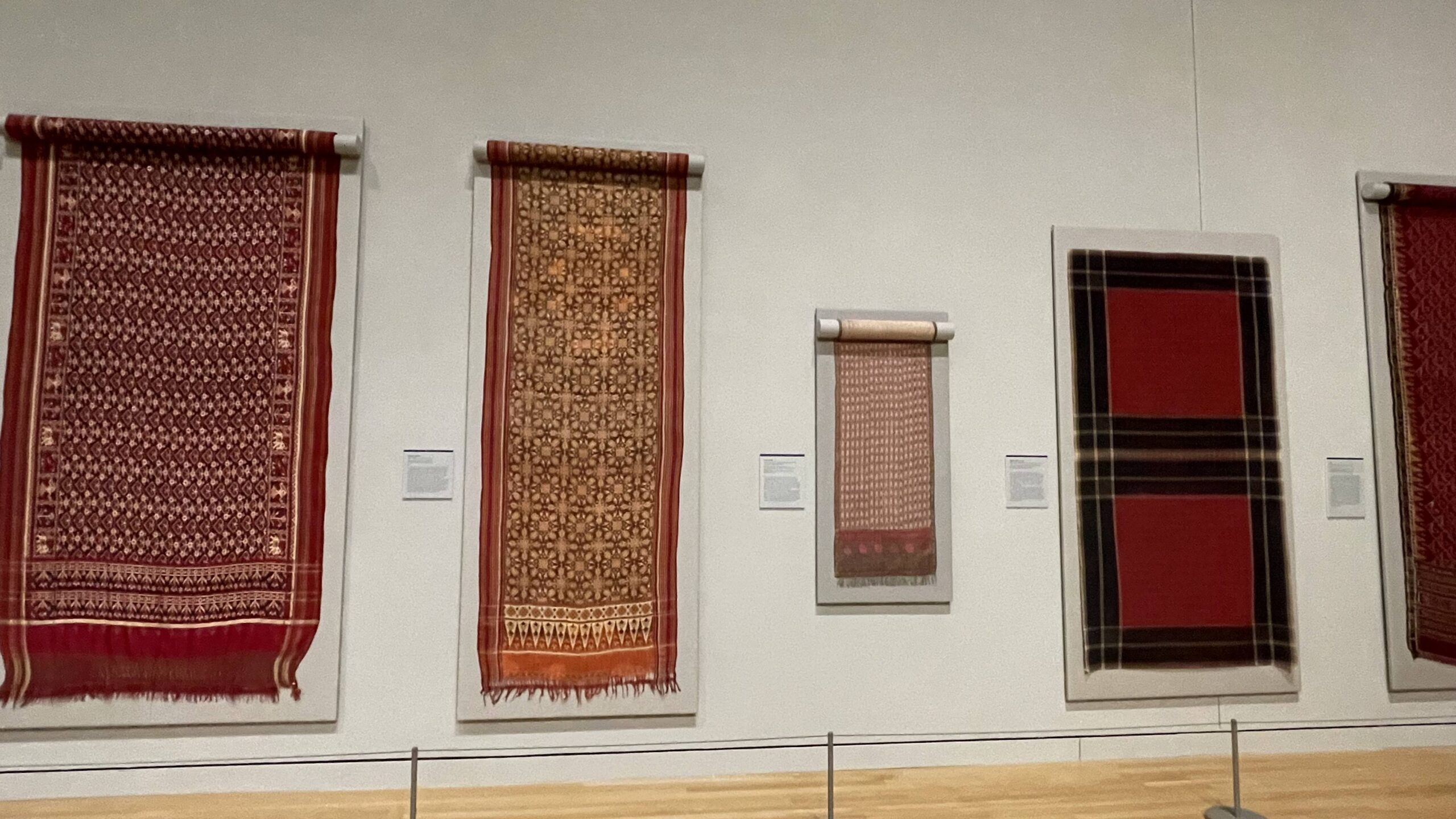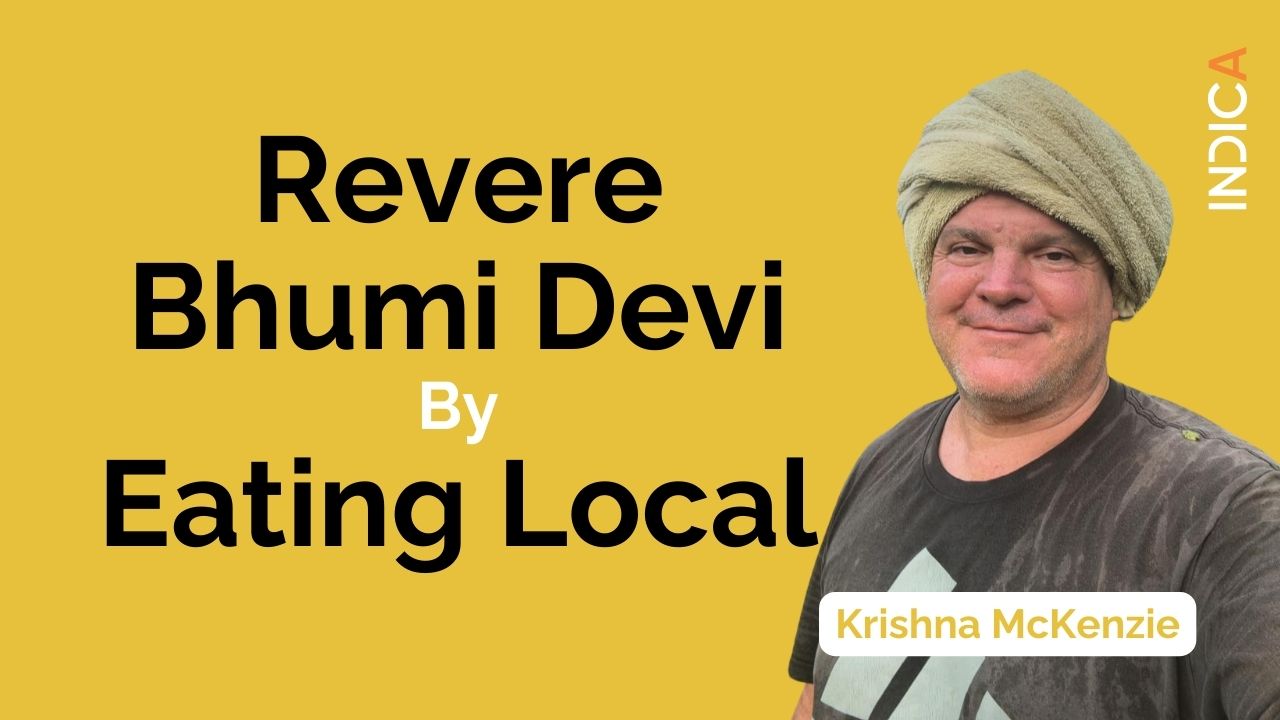Stefan Orins, talking of his album the Middle Way, where he plays with his brother drummer Peter Orins and double bass player Christophe Hache says “the middle way brings harmony between what is seen and unseen, music has both physical and spiritual properties.”
What he says about this trio, holds true for the Indo-European band Nandi consisting of Ghatam Suresh Vaidyanathan and French bass player Pascal Lovergne and Stefan. While the band members know each other very well - they travel, eat and live music together - yet unexpected, magical moments happen while playing. For that, says Orins, “You have to get outside your comfort zone, and develop the ability to think outside the box.”
With both French and Swedish origins, Stefan Orins was born in 1970 in Roubaix in the north of France. After two short years taking courses in a music school at the age of 12, he prefers to learn the music in a self-taught way, exploring all kinds of sounds on the piano at home. During his study in an Art School, jazz-music starts to be a passion, he takes his first jazz-piano lessons with Jean-Luc Drion who introduced him to the standards...
In this interview with CSP, Stefan Orins talks about his love for Indian music:
How and when did your interest in Indian music begin?
My interest in Indian music comes from my parents, they were very opened-mind and interested by oriental cultures, specifically Yoga, Ayurveda, Meditation, Buddhism… And also they listened to all king of music, including classical Indian music. An LP with Ravi Shankar was one of my favourites when I was 17 years old in the end of the 80’s. I could feel that it’s a music that elevate life. At this age, I was studying Art, and I’d used to draw and paint all night long listening to music, sometimes, specifically with Indian Music, it put me literally in trance!
Musicians have said that it is difficult to play Indian notes on the piano. How do you manage to play ragas which require gliding and not just pressing down?
Well, I still need to work on it, but because it deeply interested me I worked hard. I’m a beginner, and just discovered things, through concerts that I saw during the Chennai season how it hopefully works. For sure, I want to learn more about ragas, orders of the notes, ornamentations and how to play it on the piano. This is quite complex, so I have few years ahead to work on it. So, by the moment, I do not play ragas, I just play the group of notes that constitute the raga, and play it as a jazz musicians plays on a scale, with no rules at all…
How did Indian music sound to you in the beginning and how does it sound now? Has it changed and has it changed you as a musician?
Indian music is probably the most complex and beautiful music that I’ve ever heard. As written above, first at all, it sometimes put me into trance, sometimes, overtimes relaxes me, or in opposite, dynamises me a lot! So in the beginning, without any comprehension of this music, it had mostly a physical impact on me. Today, after working together with Nandi since few past years, I’m just beginning to understand a little bit how it works. It had been a real challenge for me to work on Konnokol, Korvais, Talas…
During the Chennai season, I heard 2 or 3 concerts that completely astonished me. What I heard and saw was unbelievable, further beyond normal human borders capacities. I really fell in love with this music, it shows how beautiful human beings can be. As a musician, it strengths my conviction that music is sacred, as a direct link with the essence of Life.
What would you say is the most fascinating thing about Ghatam Suresh's music and the Ghatam?
When I first met Suresh, I also discover his instrument the Ghatam. I didn’t know about this percussion instrument and all its capacities. What a surprise and enrichment, so many varieties of sounds, complex structures… Suresh has this capacity of constant creativity when he plays, most of the time the rhythmic challenge that he proposes really astonishes me. He is very very smart!
Suresh mentions the effort/sadhana both you and Pascal Lovergne put in to get the rolling r's and to master Konnakol. What was your motivation in doing so?
Konnakol is also something that I really discovered with Pascal and Suresh. It’s something that I’d practiced first, as exercises to play polyrhythms with more ease, and then, I worked it on Nandi’s composition. I really like this way of thinking music, totally different than in Europe. It opened many doors, and fulfilled me a lot!
How does the piano-bass-drum combination change with keyboard-bass-Ghatam?
First at all, I use keyboard as a piano, I only use the piano sound, very close to the acoustic one. The combination with the Ghatam offered more space that with a drum, I think Pascal also has more space to make beautiful fills (he’s a master for that!). I like this acoustic combination, unusual, that lets music flows with a deep breath, and the Ghatam here, has its honourable place that it deserves.
Some people use special effects to give the Carnatic feel. Is it necessary? We didn't see you doing it the other day?
It’s probably because Nandi’s music is not 100% Carnatic. It’s a blend of culture and origins. I profoundly respect Carnatic music, but my target is not to be a Carnatic musician. I play with all my western/European/Swedish jazz piano player approach and try my best to create beautiful music with people with Carnatic backgrounds.
How does the manodharma or improvisation of Carnatic music compare with that of jazz music? Where are they similar and where do you see them as being different.
I think that there’s perhaps no difference, it’s a level where we just let the sound goes out of ourselves, without any strategy or calculation. It’s the way I see it.
When was your first visit to India? What do you like most about travelling in India?
I came 2 years ago in Chennai, to perform with Nandi and Zohar Fresco (percussion) and Amit Nadig (flûte) as guests. It was my first travel in India, visiting Chennai, Bangalore, Udupi, Mysore, Pondicherry, Tirupati. What I liked the most, is the people. I love people from India, very pure and joyful.
What is the significance of the word Nandi to you? Do you like the names Suresh gives to your compositions? Are they unpronounceable?
Nandi is the sacred bull that pronounced the sacred syllables of konnakol, before this significance I didn’t know about the word Nandi. I like very much the names that Suresh gives to the compositions, it’s really poetry for me, and yes, for some names, I had to work on it to pronounce it properly!





